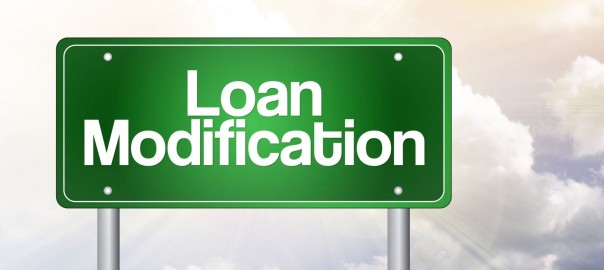For seniors looking for a new venture, house flipping offers a compelling blend of creativity…

Did you know you can save your home from foreclosure by asking your lender for help? Lenders understand that homeowners don’t want to be late on their house payment. Your bank doesn’t want you to default on your loan because they have as much to lose as the homeowner.
You can talk to your lender about re-working the terms of your loan. In fact, banks train their mortgage loan personnel to recognize accounts that may be in trouble and to reach out to homeowners with offers of help. This training takes time and costs money, but it benefits you.
If the bank offers to help you, you should listen to what they have to say. They have many tools in their arsenal of assistance, and the one that can be most meaningful to you is mortgage modification.
Loan Modification Helps You Keep Your Home
Mortgage modification is not the same as simply refinancing your home. It is a process that changes the terms of an existing mortgage. This process is one agreed upon by both the lender and the borrower. It changes the original language of the mortgage contract. Items like interest rate, length of time to pay back the loan, and monthly payment amount are all reviewed and changed as agreed upon.
The bank may offer forbearance, which reduces the amount of your principal. If you are seriously behind on your mortgage payments, the bank can also offer to forgive the past-due payments rather than including them into the modified loan.
Since it’s designed as an alternative to foreclosure or filing bankruptcy, mortgage modification can put you back on your feet rather quickly. It could save your credit and also provide financial breathing room.
Additionally, mortgage modification is a win-win for both you and your bank. Foreclosure is expensive and time-consuming. Once the bank takes ownership of your home, they must find a buyer for it to recoup their loss. Often, it is difficult for the bank to break even on a foreclosed home.
How To Qualify For Loan Modification
Homeowners typically must be delinquent on their house payment for 60 days to qualify for a mortgage modification. They may also qualify if they are in imminent default, which means the homeowner is not yet in default, but it’s likely they will be.
Also, the bank will usually require proof of hardship. This includes the loss of a job, an illness or disability, the loss of a spouse by death or divorce, or other financial difficulties.
Pros and Cons
As with any major financial decision, mortgage modification comes with good and bad. Before you proceed with any bank, make sure you know the stakes and what your legal obligations will be.
Benefits
- Immediately stops foreclosure. If you’re facing the loss of your home, mortgage modification will stop that process.
- Extended payment terms. Modifying your loan gives you time to make up delinquent payments.
- Interest rate reduction. A reduced interest rate can dramatically reduce the amount of your monthly mortgage payment.
- Principal reduction or forbearance. Some banks will forgive your late payments or reduce your principal balance.
- Financial relief. Modifying your loan and decreasing your monthly payment amount can afford you peace of mind in being able to keep your home and catch up on other bills.
Drawbacks
- Possible credit score reduction. The loan modification may have no impact on your credit score, and it may in fact improve it after the loan becomes current. However, the way the lender reports the modification to the credit bureau can affect your credit, so be sure to ask the lender what to expect.
- Bank fees. The bank is not going to modify your loan for free. Ask for an itemization of the fees before entering into an agreement. The fees could be substantial.
- Principal increase. Not all banks will forgive late payments. It’s quite possible they will add them into the loan and extend your payment years.
- It may not stop foreclosure. Some banks still pursue foreclosure while they review your loan for loan modification. Make sure you understand the bank’s intentions before you agree to the process.
The Bottom Line
Any bank can offer a mortgage modification. You should start with your own bank, but if they will not work with you or if you’re dissatisfied with the information they provide, shop around. Don’t let your credit score discourage you. If you want to stop foreclosure, you will need to explore your options. There’s help out there if you’re willing to learn.
Loan modification is an incredibly time-consuming process. Sometimes, even when you think your loan is under review, the bank can deny your loan modification. Any delay can cause your home to slip deeper into the foreclosure process. Meet with your lender, take notes, ask for brochures or other available information, and then read everything. Plan a meeting with a banking representative after you’ve had time to review all the information they’ve given you on the modification. Write down questions so you won’t forget them and insist they answer all your inquiries.


